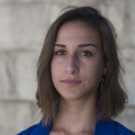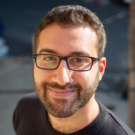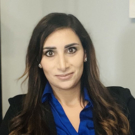Speakers

Mariam Barghouti
Writer and researcher

Diana Buttu
Palestinian lawyer and analyst; former legal advisor to PLO and Palestinian negotiators

Amjad Iraqi
Editor and writer
+972 Magazine
Moderator
Event Summary
On June 3, 2021, Arab Center Washington DC (ACW) held a webinar that focused on the newly energized and unified activism by Palestinian youth throughout historic Palestine and the diaspora, as they confront the ongoing Nakba and the abuses of Palestinian rights. The panelists were writer and researcher Mariam Barghouti; Palestinian lawyer and analyst Diana Buttu, who also served as the former legal advisor to PLO and Palestinian negotiators; and Amjad Iraqi, editor and writer with +972 Magazine. The webinar was moderated by Tamara Kharroub, ACW assistant executive director and senior research fellow.
Tamara Kharroub offered a general overview of how young Palestinian activists have been organizing strikes, protests, and marches as they use social media to further mobilization—with some calling them the “TikTok generation.” She said that their activism energized the Palestinian resistance and helped to reconnect the Palestinian community within historic Palestine and in the diaspora. She asked a number of questions of the panelists, including the following: Is this a transformative moment for Palestinian rights? Can a new young leadership emerge outside the traditional parties, and what is the state of Palestinian youth activism today? What factors led to the unified activism now? How are young people reacting to the repressive policies of the Palestinian Authority? Are there shifts in traditional US foreign policy toward Palestine and Israel, and in media coverage and framing of the events? How has international solidarity with the Palestinians changed since the Sheikh Jarrah events and the latest Israeli war on Gaza? How can these shifts and changes be sustained in both historic Palestine and internationally?
Diana Buttu said that there has always been youth engagement and mobilization throughout history in Palestine, a movement that has protested racism, apartheid, discrimination, and ethnic cleansing. She said the Oslo framework did away with transnational solidarity, which is what has been revived at present. The Palestinian Authority, she added, tried to coopt the protests and take credit for them, and now it is simply crushing them and arresting protesters. Buttu said that members of the international community are either the diplomats or “the rest of us,” and it is the former that will try to keep propping up President Mahmoud Abbas and delay the elections as long as possible. This community, including the United States, will also continue to coddle Israeli leaders, including Naftali Bennett and Yair Lapid, whom she argued “share the same vision” as Benjamin Netanyahu, adding that she expects “to see the same, if not worse” policies from them. Buttu said that there is essential agreement among all Israeli parties, from the right to the left, as to “how much they want to crush Palestinians.”
Amjad Iraqi agreed that such youth activism was not unprecedented, but that in the recent events, “the fact that Jerusalem was now taking a fundamental role in this awakening was central.” For Palestinian citizens of Israel, especially the youth, there was the realization that the promise of equality has not materialized and was actually a myth. He said that the Palestinian-led general strike that unfolded in May across historic Palestine showed the extent of power that was reclaimed by youth. They are now continuing such activism through hosting cultural activities, sponsoring know-your-rights workshops, reaching out to Palestinians across the Green Line, and encouraging people to buy Palestinian products to promote economic empowerment. What has been remarkable, he added, is the change in the vocabulary used in discussing the events, with terms like “settler colonialism” and “apartheid” ubiquitous, even in western media; Iraqi said that Palestinians themselves have been “unshackled” and are proactively using this terminology, and that years of organizing have made this moment possible. He said that because the Black Lives Matter movement forced conversations in US media about how the Black struggle is narrated, this helped to pave the way for more accurate conversations about Palestinian rights. In response to a question about the two-state solution, Iraqi argued that this paradigm is now irrelevant. He said recent events illustrate that Israel’s policies have no borders, that its “synchronized violence” against Palestinians shows an apartheid reality where a single state apparatus is operating based on the supremacy of one group over the other. He concluded that the question is, rather, what the one state reality will look like—“apartheid, or not apartheid?”
Mariam Barghouti explained that 22 percent of Palestinians in the West Bank and Gaza are between the ages of 18 and 29, and 45 percent are under the age of 18. This means that a total of 67 percent are under 29 years old, a large youth population that points to the big role that youth are assuming in current activism. They have lived under the Oslo framework all their lives, she continued, and have realized that it does not work; they are now playing an informal and impactful role in the struggle against the colonialism and ethnic cleansing that they experience daily. To her, the idea of leadership should be reframed so that representation is key; the people themselves take the lead in different ways, she explained, and together their efforts lead to freedom “to live and to live on our land.” Barghouti argued for moving beyond exceptionalizing Palestine, since there are oppressive forces everywhere and solidarity is needed with other world struggles. Some of her messages for the world community are to keep Palestinians safe; stop funding Israel’s bullets, bombs, and nuclear capability; stop emboldening the Israeli settler movement; call for sanctions on Israel; legitimize the Palestinians’ right to resist; treat Palestine as a single unit and, especially, do not isolate Gaza from the narrative; amplify and support each other and each other’s struggles; and listen to Palestinian voices.

